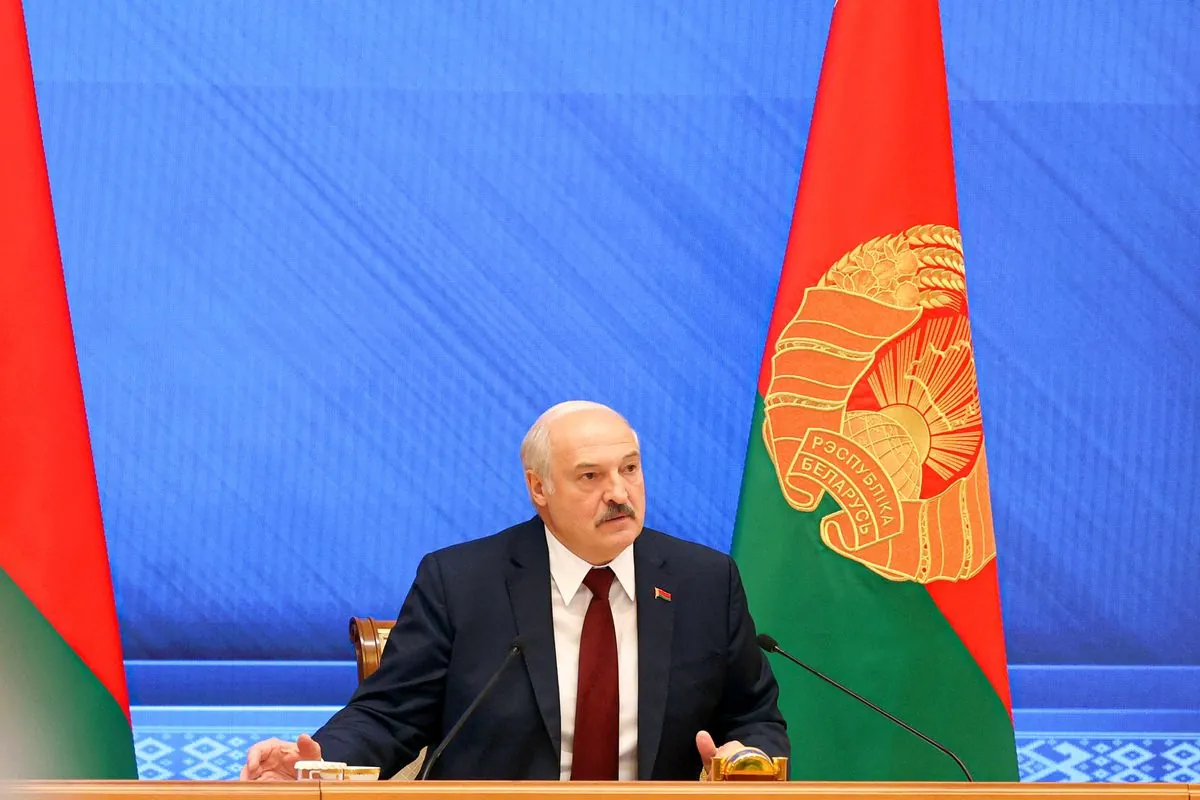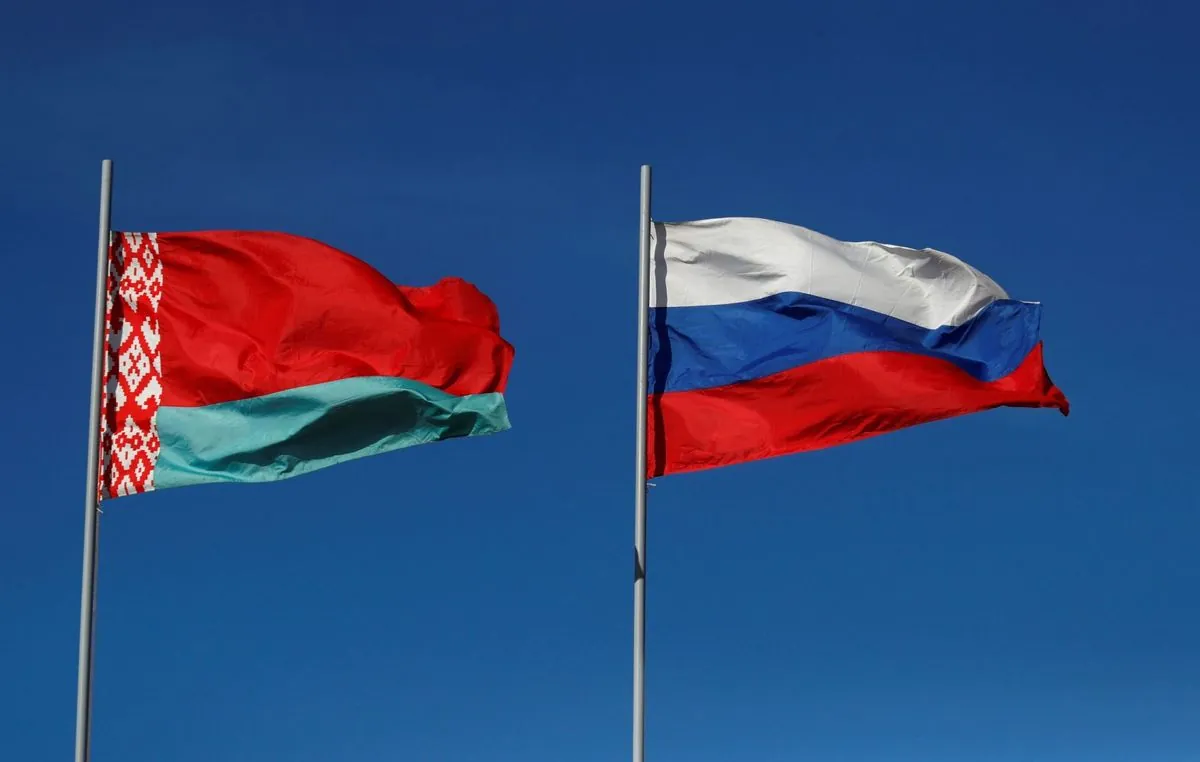Lukashenko Urges Russia-Ukraine Talks Amid Border Tensions
Belarusian President Lukashenko calls for negotiations between Russia and Ukraine to prevent conflict spillover. He accuses the West of prolonging the war and warns against potential attacks on Belarus.

Alexander Lukashenko, the long-standing President of Belarus since 1994, has called for negotiations between Russia and Ukraine to end their ongoing conflict. In a recent interview with Russian state television, Lukashenko expressed concern about the potential spillover of the war into Belarus, a country that shares borders with both nations involved in the conflict.
The Belarusian leader's comments come in the wake of a significant Ukrainian incursion into Russian territory. On August 6, 2024, Ukrainian forces reportedly advanced 35 km into Russia, causing considerable embarrassment for Russian military leadership. This development has led to increased tensions in the region, with Russia announcing plans to strengthen its border defenses and ordering evacuations in the western Kursk region.
Lukashenko, a key ally of Russian President Vladimir Putin, positioned himself as a supporter of Moscow since the full-scale invasion of Ukraine began in February 2022. However, his recent statements suggest a desire to prevent further escalation of the conflict. He urged both sides to "sit down at the negotiating table and end this brawl," emphasizing that neither Ukrainians, Russians, nor Belarusians want the war to continue.
The Belarusian President accused the West of prolonging the conflict, stating that only "high-ranking people of American origin" wanted the war to persist. He suggested that Western powers were encouraging Kyiv to fight with the aim of weakening both Ukraine and Russia. This perspective aligns with Belarus's close ties to Russia, formalized through the "Union State" agreement in 1999, which deepened political and economic cooperation between the two countries.

Lukashenko also expressed concerns about potential attacks on Belarus, although he did not provide evidence for these claims. He stated that Minsk would not allow Ukrainian troops to "trample on our country." In response to alleged airspace violations by Ukrainian drones, Belarus announced on August 12, 2024, that it was reinforcing its southern border with Ukraine.
The Belarusian leader's stance on the conflict reflects the complex geopolitical situation in the region. While Belarus is not a member of NATO, it is part of the Collective Security Treaty Organization (CSTO) with Russia. Lukashenko emphasized that Belarus does not want a war against NATO but warned that if provoked, "we'll have no other choice."
Regarding the presence of Russian nuclear weapons on Belarusian soil, Lukashenko stated that there was no reason to use them unless Belarus's borders were violated. This deployment, which occurred in 2023, marked the first time Russia had stationed nuclear weapons outside its borders since the fall of the Soviet Union.
As the conflict continues to evolve, Belarus finds itself in a delicate position. With a population of approximately 9.4 million and an economy heavily dependent on Russia, the country faces significant challenges. International sanctions imposed on Belarus due to its support for Russia's actions in Ukraine have further complicated its economic situation.
"We don't want escalation and we don't want a war against the whole of NATO. We don't want that."
The ongoing situation underscores the importance of diplomatic efforts to resolve the conflict. Minsk, the capital of Belarus, has previously served as a venue for peace talks regarding the conflict in eastern Ukraine. As tensions persist, the international community continues to monitor developments closely, hoping for a peaceful resolution that respects the territorial integrity of all nations involved.


































